RV park residents and Saving Mercy clash over evictions to make room for permanent housing
Joyce Burton has lived at the RV park at 3601 W. Silver Springs Blvd. in Ocala for nearly 39 years, but she fears her residency won’t last much longer following recent changes at the park.
“I’m 77 years old. I’ve been here since 1983. Never had no problems. I've been through five ownerships," she said on Friday at the park. “One day, my daughter comes in my house. I had an eviction notice on my door. Why? I do not know.”
Burton is one of many elderly, disabled or low-income residents who have received an eviction notice recently from Saving Mercy, the nonprofit that manages the park and provides housing and case management to as-risk and vulnerable homeless individuals, per its mission statement.
Marion schools: Tentative budget hits all-time high of $905M thanks to COVID relief funds
Previous coverage: Saving Mercy moves homeless housing plans forward
Man found safe: One of Florida's first ever Purple Alerts was issued in Marion
Residents were aware Saving Mercy, which was founded as a ministry of Blessed Trinity Catholic Church, is preparing to construct permanent supportive housing on the property, but they say they are being evicted illegally as if they were “transients.” While several packed up and left, some have appealed and plan to stay put until further notice.
There are about 90 residents of the RV park and motel on the property, according to Ruth Yamada, who rents a trailer from Saving Mercy. She’s kept a record of 14 people given the eviction notice and 10 who have left so far.
Residents claim evictions are illegal
“For evicting people, they have to give us a reason. So, we either are behind on our rent or we violated park policy or there's some drug trafficking,” she said. “Then you get a letter that says you're in violation of whatever violation it is, and then they give you no less than 15 days and it cannot coincide with the day your rent comes.”
Yamada lived with her partner Don Chindlund, who had terminal prostate cancer and was told he had less than six months to live, and Patric Scavetta, a friend who helped care for Chindlund.
They first received a letter in February that Saving Mercy no longer wanted to allow them as guests, and they had six days to vacate.
“If you go into the (Florida) Statutes, that's the letter you would give somebody in a transient mobile home park, like a seasonal mobile home park, where somebody stays for less than six months,” Yamada, who was formerly the property manager at a separate mobile home park, said.
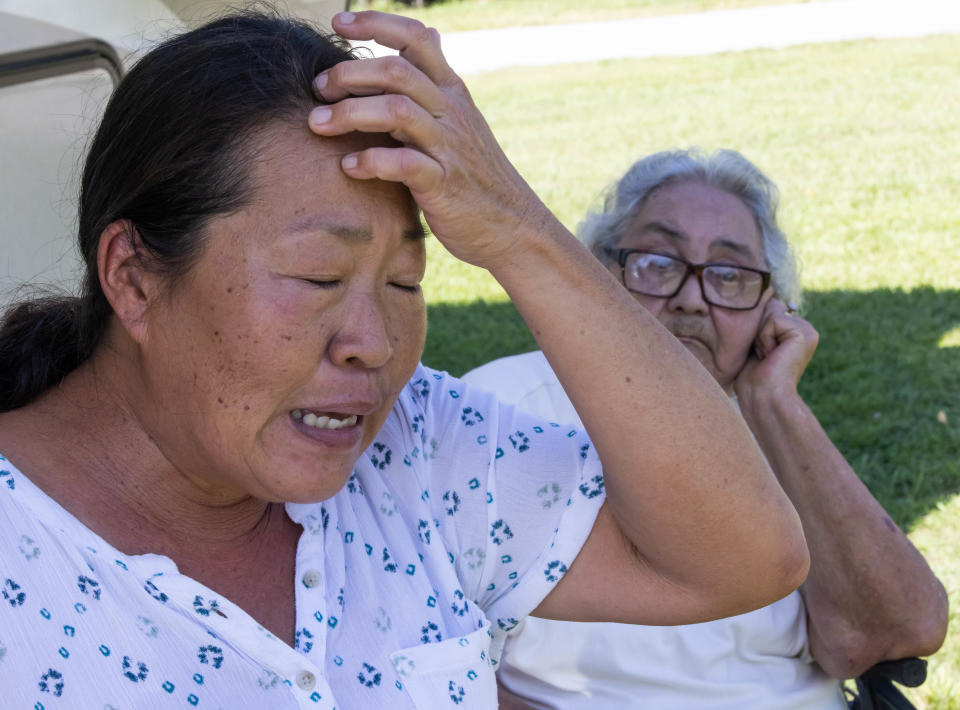
Attorneys have advised them that because more than 20 people live there full time, it is not a “transient” mobile home park and Saving Mercy must go through the proper eviction process through the court. Furthermore, Yamada has lived there since 2014 and established residency, she says.
A notice to vacate was delivered to Scavetta on March 28 stating the unwritten lease would be terminated at midnight on April 1, effectively giving only three days despite also saying it was “no less than 15 days after the date of the delivery of this notice.”
In addition to the alleged illegal eviction process, Yamada’s appeal claims violation of fair housing laws and that Chindlund was illegally discriminated against based on his disability.
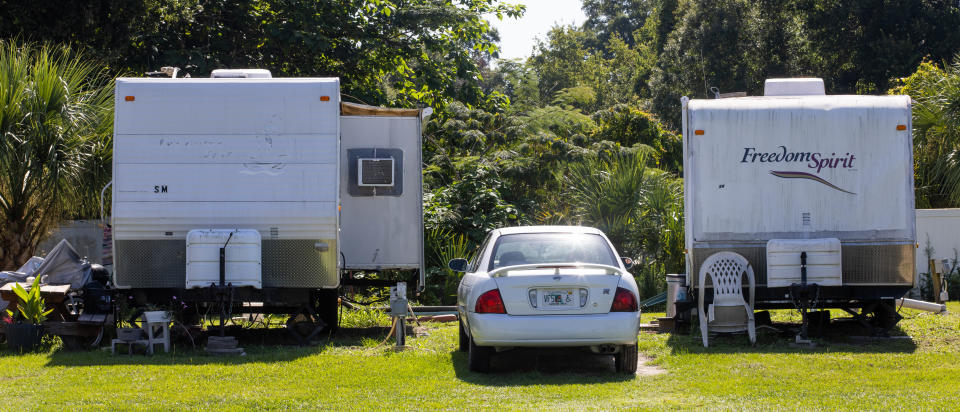
Yamada explained that Chindlund was receiving Hospice care and life-sustaining medications at their mobile home but that Saving Mercy requested his entire medical file to know what medications he was taking.
Chindlund refused, believing this was a violation of privacy. He died on June 23.
“I think trying to cut off or interfere with someone’s health care when they’re dying shows me, where is the compassion in this whole thing?” Yamada said.
Saving Mercy will construct supportive onsite housing
Yamada is also active in the park and runs a cat rescue program there, so she had been promised one of the first places to stay in the new housing facility by the previous executive director who she says was fired last year.
Stacey Collier became the new executive director.
“Our plan to develop a small, onsite housing community there has been openly publicized for many years,” Collier said in a statement issued Friday. “In particular, preexisting occupants of the property at the time of our purchase were clearly advised of this plan, as is everyone who has come here since.”
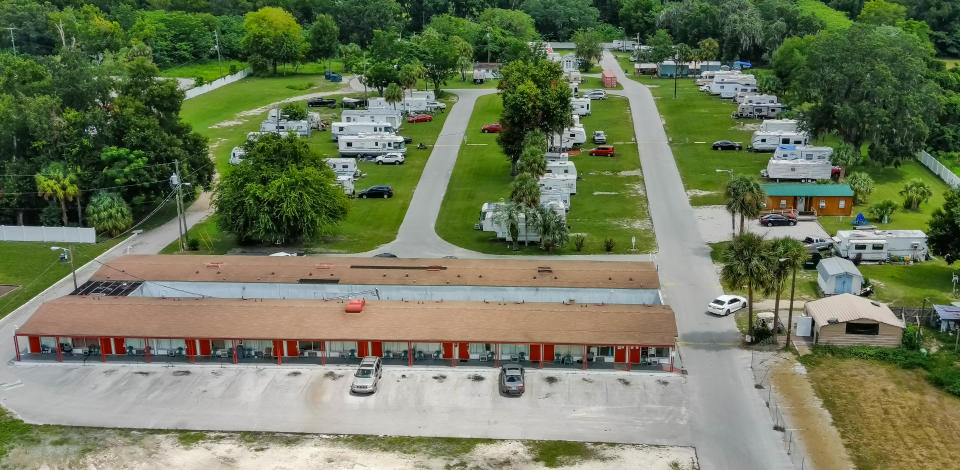
Letters posted on Feb. 24 stated Saving Mercy was preparing to start phase one of the project and that “very few residents will be affected and have been previously notified.” Everyone else would not have to relocate until June 1, 2023.
Another component of Yamada’s legal case is that Florida law requires the tenants get at least six months’ notice of the eviction due to a change in use of the property, which must state that they could be entitled to compensation from the Florida Mobile Home Relocation Trust Fund.
Yamada, who pays $560 in rent, requested relocation assistance and was told she was not eligible, she said. With increasing housing costs and stagnant incomes for many, she is concerned about those individuals like her who make more money than the income ceiling for many social services but less money than is required for standard housing.
She’s also concerned about her fellow residents.
“My heart bleeds for them more than it does for me because I can survive in my car,” she said. “We’ve looked for homes. We’ve looked for options. I’ve looked for things where I can work to offset my rent. There’s nothing for Pat and myself anymore.”
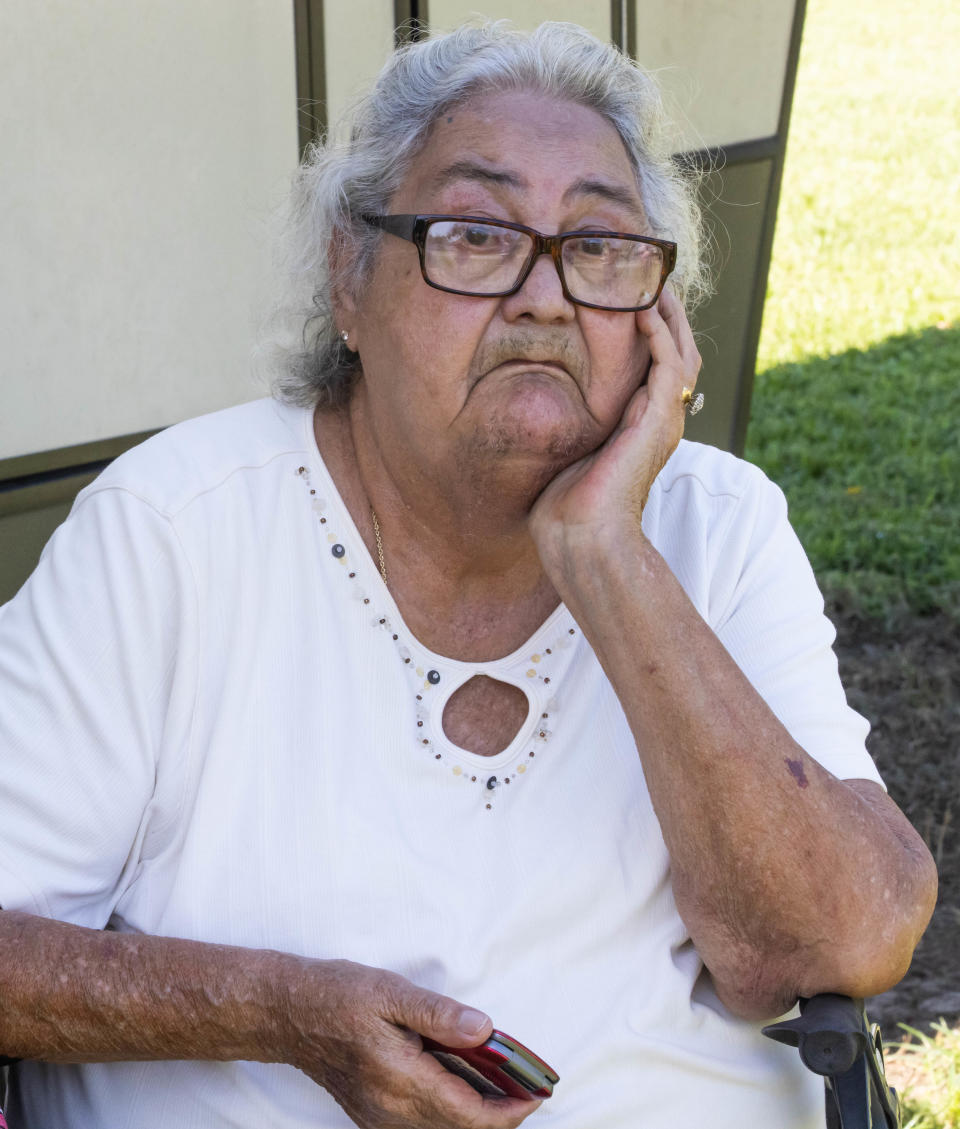
Tenants feel they have been singled out
Burton says she has stayed up to date on her rent and obtained two money orders when she was told she was two months behind.
“I'm disabled. I got four specialists and doctors and why they want evict me, I don't know,” she said. “I’ve got all my rent receipts ever since she’s been here.”
Her great-grandchildren had gotten together to buy her a new camper with a walk-in shower, but she says she wasn’t allowed to bring it on the property. She also asked if she could stay through the end of the year for her doctors’ appointments.
Her notice to vacate was delivered June 13 and stated she must leave by July 1, but no further action has been taken.
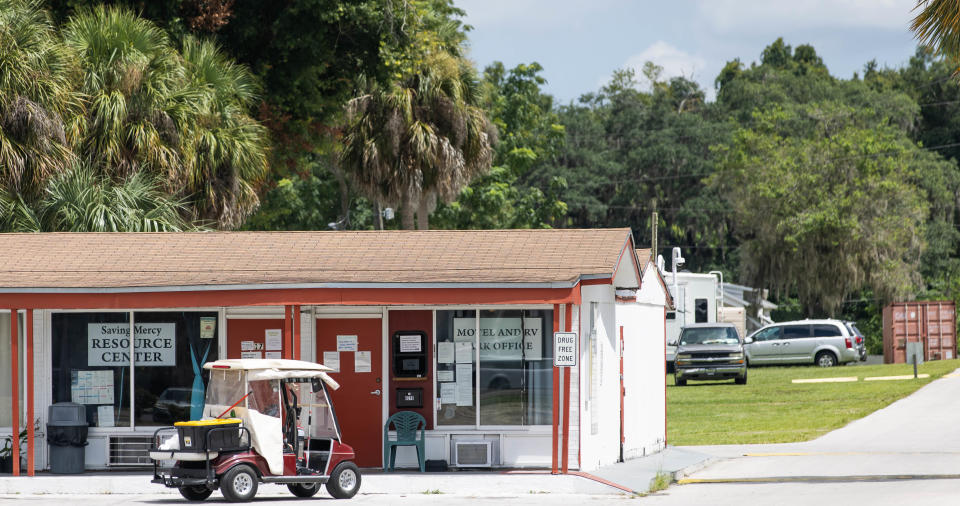
“My camper that my grandchildren gave $25,000 for is sitting down there at my granddaughter's yard in Tampa,” she said. “As soon as I get through with my specialists here, my doctors, I'm going to go to Tampa next four or five months.”
Peter Grier is also disabled and legally deaf. He lives at the park with his wife Jennifer and three children and pays $450 in rent. They are part of the transitional housing program and have an emergency housing voucher that expires on Aug. 8 but have not found a new home since moving there in February 2020.
Their participation in the program has been terminated and notice to vacate issued due to alleged threats and unwillingness to meet with staff.
“I didn’t threaten anybody, and I didn’t refuse,” he said. “I told them if you want us to meet with the executive director, we wanted a lawyer and we wanted it video recorded because I don't trust any of these people anymore.”
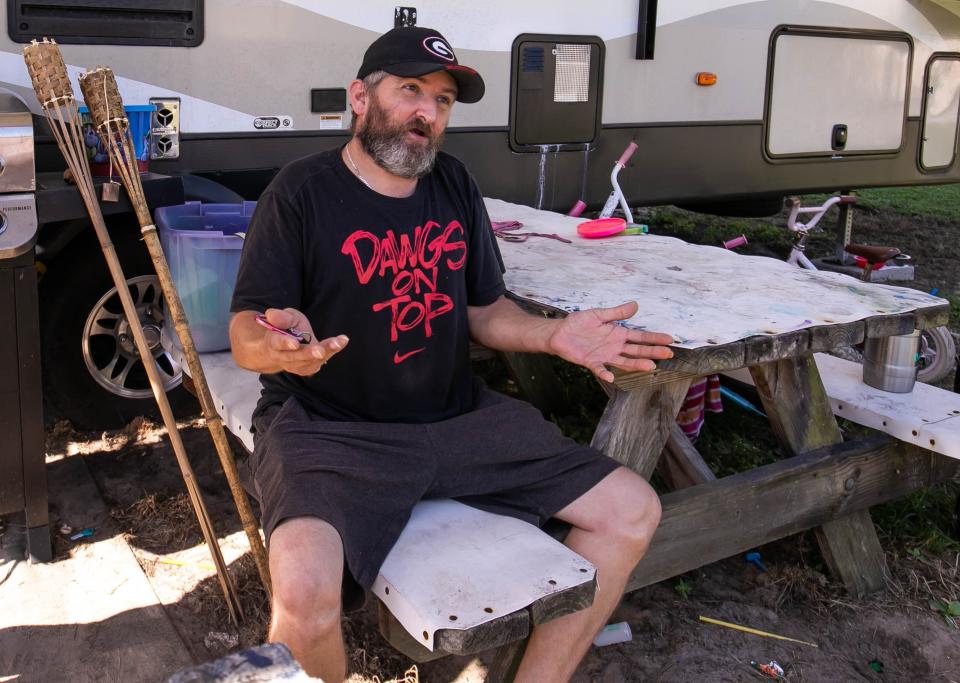
He feels that they have been singled out because they have received complaints about their children being unsupervised at the park, though he says they were only playing hide-and-seek and that there is a long list of other residents in violation of park rules that have not been evicted.
“We’re scared to death, us and our three children. When are we going to be on the street?” Jennifer said.
“The only option we have right now is basically to move in with my wife’s family in Pennsylvania,” Peter said.
Some residents chose not to fight ejections
While the Griers have appealed their ejection, other residents decided it was not worth fighting, including Anthony Dicapua.
He had lived at the RV park for 10 years and says he paid his rent early every month.
A police report from November states that Collier tried to have the Ocala Police Department trespass Dicapua using a policy from the Florida statutes for “transients” disrupting the peace, though the police officer also advised Dicapua was a resident and not a transient and had been up to date on his rent.
"The officer said you cannot do that,” Dicapua said. “These people have lived here a long time. You individually have to give every one of them people a reason why they have to leave, why there's a problem.”
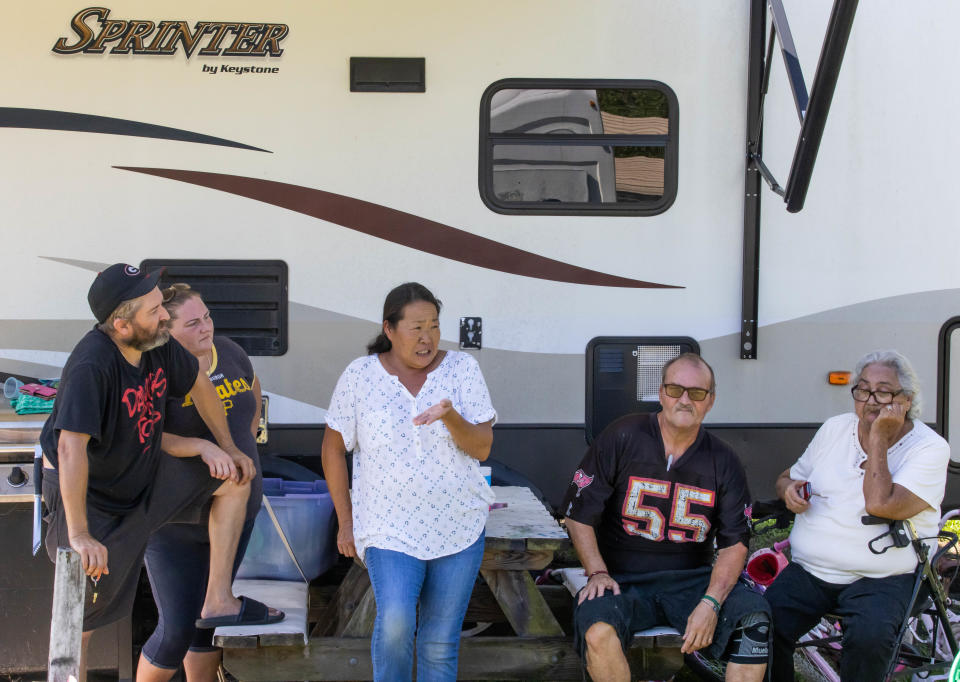
An official eviction complaint filed by Saving Mercy with the court in January claimed Dicapua was delinquent on his “weekly” rent even though he pays monthly, which Yamada says is a tactic to try to establish the residents as transients and make it easier to evict them.
The complaint also had a vague statement about “a modular structure” on the premises that could not be determined whether it was a mobile home.
“They’re evicting me because a trailer don’t belong in a trailer park,” Dicapua said.
He now lives in a hotel for $1,400 a month. He says many of the places he’s looked for housing don’t want to rent to him because he came from Saving Mercy.
“All I want to do is help the other people. I'm not worried about me,” Dicapua said. “I know there's about 10 people in there that are really sick, that have heart problems, kidney transplants, liver transplants, Alzheimer’s.”
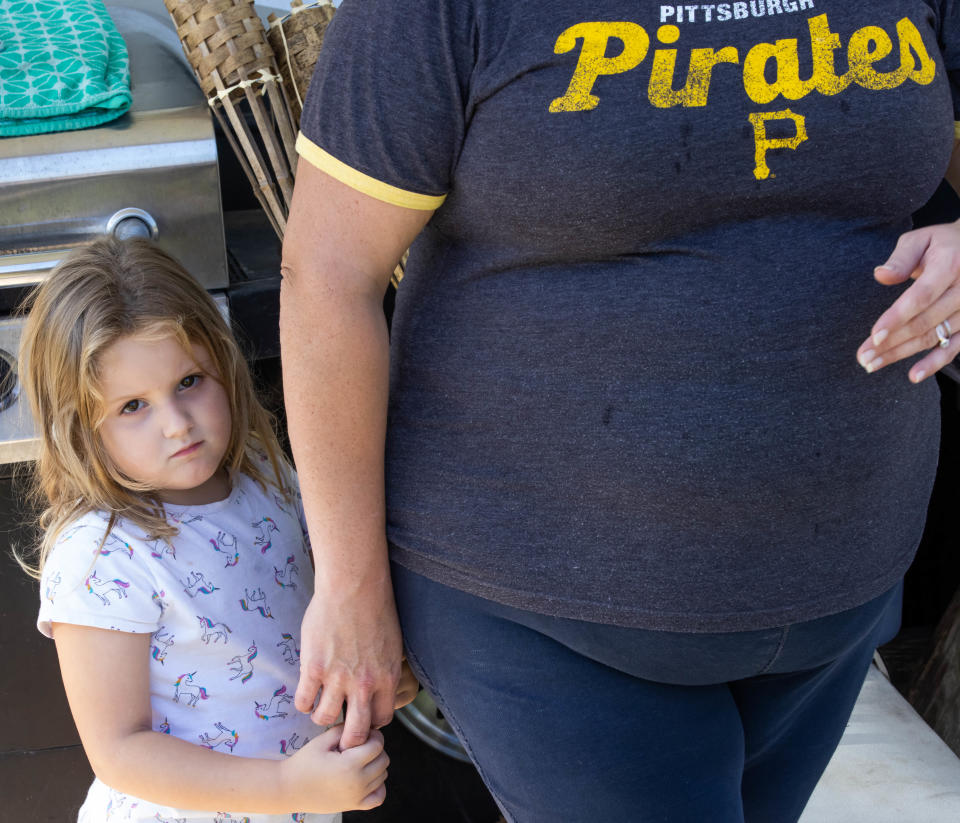
Saving Mercy says all conduct has been charitable and lawful
Collier’s statement says that Saving Mercy’s mission is to reduce chronic homelessness in the community and it provides qualified candidates with support services for health, stable employment, financial skills and transitional housing.
Saving Mercy was founded in 2016 by a group of Blessed Trinity Catholic Church parishioners as a ministry of the church, but it later evolved into its own nonprofit independent of the church. Father Pat Sheedy was out of the country and unavailable for comment on this story.
“Although many of the current occupants are not enrolled in our program, we have always offered to assist with obtaining alternate housing as well as other basic services regardless of their status,” Collier said. “Sadly, a headstrong few have ignored our advice and rejected our help, choosing rather to entrench themselves in relentless unreasonable, unhealthy, perilous, and sometimes unlawful actions, leaving us to seek legal remedies as a very last resort.”
The statement was issued in response to a report from WCJB featuring some of the same residents. Collier stated they must refrain from comments on the specific cases because of the pending litigation and declined a follow-up interview with the Star-Banner.
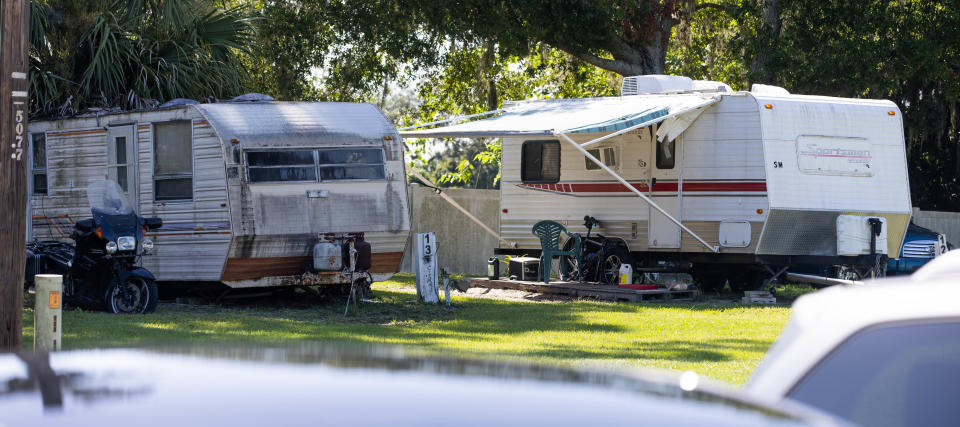
“But the fact is this: In every instance, our conduct toward all persons, whether occupants of our property or non-resident clients, has been and will continue to be charitable and certainly lawful,” Collier stated and subsequently asked for others to join the mission by volunteering or donating.
According to Marion County Public Relations, Saving Mercy has had three contracts with the county that have all expired. Saving Mercy spent nearly $46,000 of a nearly $100,000 contract ending on Jan. 1, 2022.
It did not spend a nearly $48,000 contract that expired on May 31, 2022. It did spend all of a nearly $52,000 contract that expired on June 30, 2022. There is another contract up for renewal.
Housing issues exacerbated for low-income individuals
All of the grant money through the county or the Department of Housing and Urban Development’s Continuum of Care program was to be used for rapid rehousing or case management to help house homeless people.
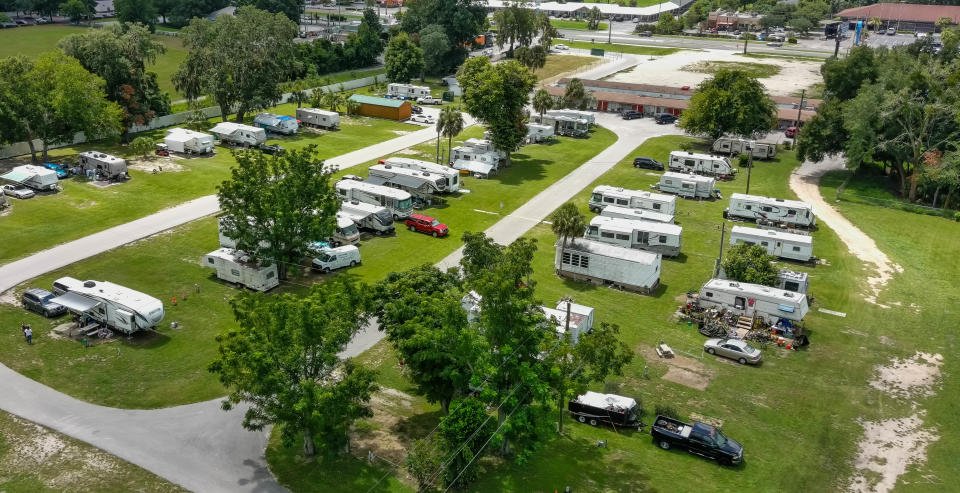
Yamada says the idea behind Saving Mercy is great and that it could be a big asset for the community, but she believes the evictions are contradictory to the nonprofit’s mission.
“The deal was they were supposed to help get the homeless people off the street,” she said. “Now they’re making more homeless people.”
Regardless of the legality of the evictions, Yamada sees greater problems with housing for low-income individuals that need to be addressed. She’s concerned about the people who are slipping through the cracks either for lack of access to programs or because they make just enough money to disqualify them from certain social services.
“When you call the governmental agencies that are supposed to help you with rehoming, it’s like the economy, the housing shortage, the cost of living, the cost of what we all make, it doesn’t click. It doesn’t jive,” she said. “There’s a severe imbalance.”
Contact reporter Danielle Johnson at djohnson@gannett.com.
This article originally appeared on Ocala Star-Banner: Saving Mercy residents fight back against evictions from Ocala RV park

